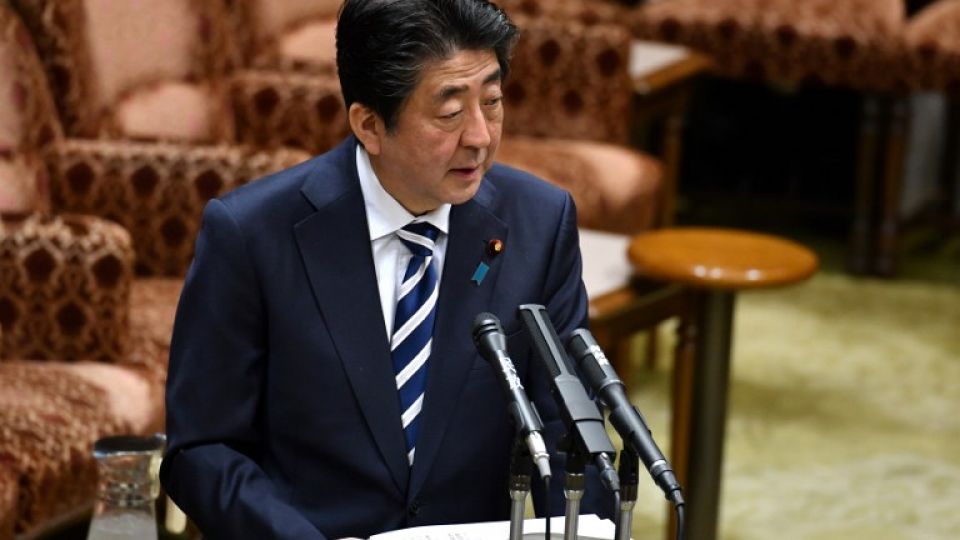April 24, 2018
A round-up of the most important and relevant editorials from ANN partners.
It has been an interesting two weeks in Asia, one that might shape the future of the continent for the foreseeable future. We take a look at several editorials from our partners to offer a perspective on these events.
Japan
Japanese Prime minister Shinzo Abe visited US President Donald Trump in Florida over the past week to push his country’s trade agenda and to seek reassurances about Trump’s planned negotiations with North Korean leader Kim Jong-un. Abe has been experiencing a drop in poll numbers back home and was looking towards the meeting to shore up his sagging prospects.
An editorial in the Yomiuri Shimbun had this to say on trade:
The problem is that the two countries differ in their expectations about where the trade talks under the new framework should be directed.
Abe encouraged the United States to return to the Trans-Pacific Partnership free trade deal, saying the TPP is “best for both Japan and the United States.”
Trump emphasized his intention to not return to the TPP unless it is renegotiated under terms very advantageous to the United States, saying, “I would much prefer a bilateral deal.”
The reason why the United States is sticking to bilateral negotiations must be that it thinks it will be easier to obtain results, such as increased imports of specific items and restraints on exports by its trading partners.
Korea
Korea (both of them) have been making all the headlines recently, though this time for the right reasons. Both sides have taken steps to de-escalate tensions on the peninsula, starting with a rapprochement at the winter Olympics. Since then high-level meetings have been conducted by diplomats from both countries with South Korea sending a team to meet Kim Jong-un in the north. A summit between South Korean President Moon Jae-in and Kim will take place later this week.
The north has prefaced the talks by saying it will halt its nuclear and missile tests. An editorial in the Korean Herald takes a closer look:
True, it is a good sign that the North took what should be one of the first steps toward denuclearization on its own ahead of the summit talks with Moon and Trump.
The latest development, however, should not give unguarded optimism. Most of all, neither Kim nor the party meeting report touched on denuclearization, which should include verification and dismantlement of existing nuclear stockpiles and related facilities.
Moreover, Kim made it clear that one reason he was putting a moratorium on nuclear and ICBM tests was because his country has already completed the capability to mount a nuclear warhead on a missile and to develop delivery and strike means.
India and Pakistan
More conflict in Kashmir as India and Pakistan again clash. An editorial in the Statesman questions the futility of it all:
For even the most gung-ho military and political leaders will privately admit that despite boasts of breaking the back of militancy, not even stray rays of light are discernible at the end of the tunnel.
The aim of this comment is not to apportion blame or point accusing fingers ~ for the separatist leaders and the sponsors/mentors of violence, many operating from the western side of the Line of Control, are as much responsible for gunfire/stone-pelting doing the talking, as are the security forces for discarding drills, operating procedures etc. However both the democratic leadership and the people at large have to ask themselves if this level of bloodletting is acceptable.
Thailand
Elections are likely delayed again. This is at least the fifth time the junta has pushed back on its election promises, falling back on the argument that it was following its vague, poorly-defined roadmap. What is not being reported as much as the first days after the coup is the systematic degrading of rights and due process under the military government.
An editorial in the Nation newspaper takes a look at the junta’s silence on its rights abuse:
What must be made clear at the outset is that many of the laws enacted by the junta-led government are unjust because they limit civil rights. The United States took note that many junta decrees enacted following the 2014 coup to restrain warring ideologues remained in effect in 2017, long after hostilities had ended.
Order No 3/2015, for example, replaced martial law in March of that year but gave the government sweeping powers to curb “acts deemed harmful to national peace and stability”.
The junta defines “national peace and stability” as it wishes. It’s a catchall phrase used to justify the detention of citizens even when there is no legal merit for doing so.
Philippines
The drug war continues in the Philippines. Many had hope that new police chief Oscar Albayalde would temper the situation. However, a day after he was sworn in, 14 suspected drug smugglers were killed for ‘resisting arrest.’More of the same or just a carryover from the old administration? It remains to be seen.
An editorial in the Daily Inquirer takes a look:
Would the much-admired Albayalde chart a different path? Would he stand up for vigorous law enforcement that, at the same time, respects and upholds the basic constitutional rights of Filipino citizens?
Perhaps it’s too early to tell, but the shock and awe of his early days in office do not serve to inspire much confidence. An EJK-weary nation desperately hopes that he will prove such fears wrong.


